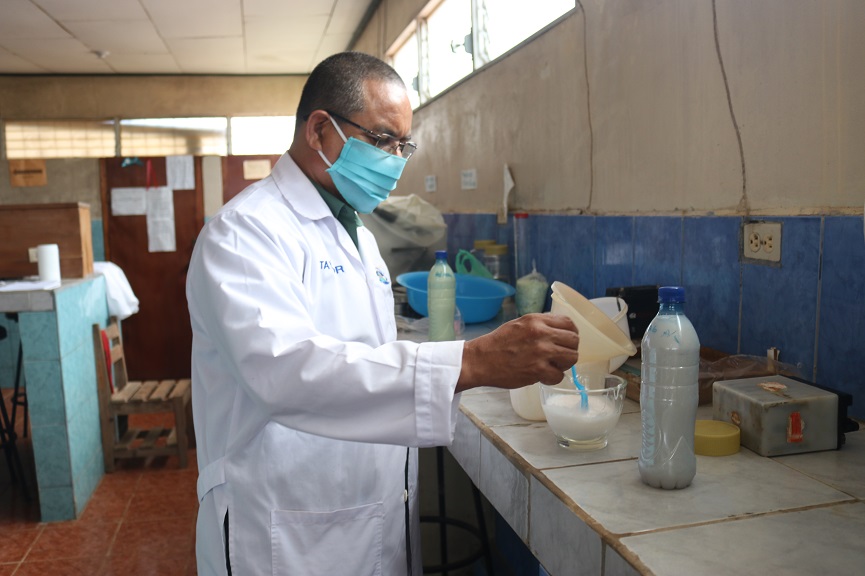
In the foreground the chemical engineer Allan Taylor, during the process of making liquid soap.
COVID-19 prevention measures
The rector of URACCAN, Dr. Alta Hooker Blandford, attending the institutional protocol anti-COVID-19, as part of the follow-up to the measures aimed at the 4 enclosures and the 4 extensions of this institution to take actions relevant to the prevention of COVID-19, continues with the preparation of the production of inputs necessary to comply with the hygiene of its university community.
In this sense, the Bilwi Campus Science Laboratory is making liquid soap to place in the sinks and sanitary services on campus.
According to chemical engineer Allan Taylor, head of this laboratory, he explained that right now we are working on 3 formulas for the realization of liquid soaps, "solid soap tests are carried out in New Guinea; then, now we see that liquid soap is more accessible and more manageable, processing some potassium hydroxide with vegetable oil, which come together for saponification, with the result that it does not harden as in the other solid soap procedure," Taylor explained.
Effective result
Taylor noted that during the 24-hour rest process given to the 3 formulas used, it was observed that the consistency of liquid soap persists, "once the three tests have been formulated there is a liquid, then we had the task of reviewing its quality (...) it has consistency, it hasn't separated, the test is positive, because it stays in its component and we have a good product," the chemical engineer detailed.
You may be interested: URACCAN produces inputs to protect health
He explained that in the first phase it can be said that URACCAN has its own liquid soap, although work continues to achieve transparent consistency, "we will continue to do trials because the idea is to offer a transparent liquid soap," he concluded.
Rector Hooker, guided soap to be produced in liquid, as solid soap often falls off and fills with dirt, and loses some effectiveness when in contact with the environment, tends to degrade.
Apart from soap, alcohol, sanitizing chlorine and bleaching chlorine are also being produced, the first advances of which were made at the URACCAN Science Laboratory in New Guinea.
- Log in to post comments
- 76 views
